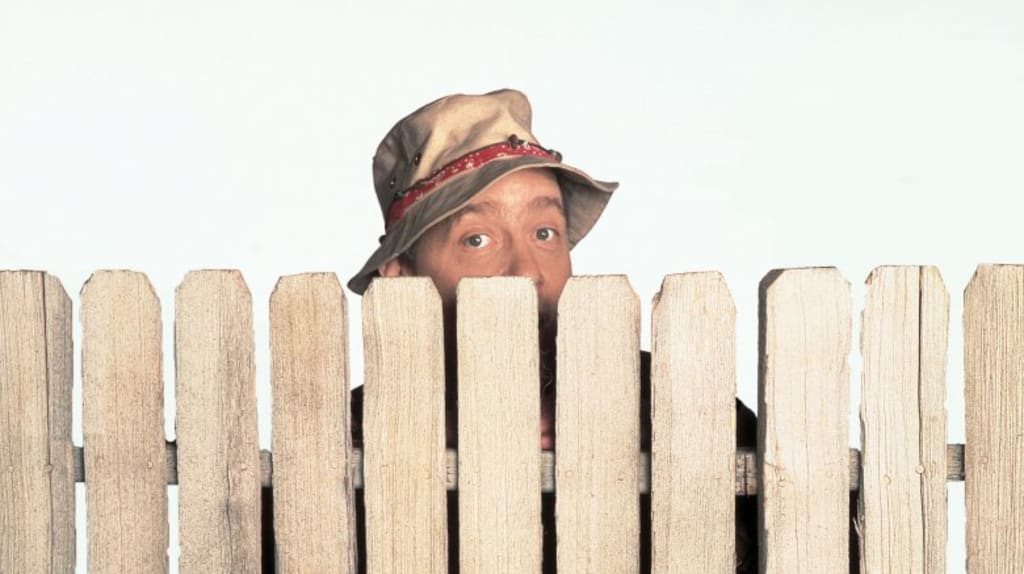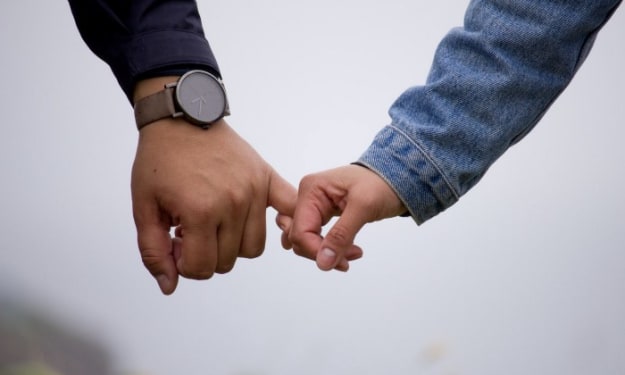Home Improvement and the Traumatized Mind
PTSD as Experienced in Everyday Life

Even after recovery, PTSD can continue to make itself known for years after an episode of violence occurs. Case in point, I recently moved to a house that’s a bit of a fixer-upper. Excited to finally own my own place, I bought a pressure washer to take off some of the grime that had accumulated from the surrounding forest over the years. Admittedly, it’s pretty noisy and so I limit its use to an hour once every two or three weeks. Even so, on two occasions I’ve been accosted by a neighbor who lives across the canyon. He bursts through our gate, screaming at me to stop immediately—and forever. This individual refuses to accept my apologies and will consider no compromise.
After having lived in the city for decades, I’ve been on the receiving end of inescapable construction noise more than I care to remember. I know what it’s like to lose your cool after having been patient day in and day out. Yet something about this implacable man and his refrain of “you don’t care about anyone” frightens me. An angry White man in his mid-seventies, he is of the same age and demeanor as my father at the time he murdered my mother and committed suicide.
So far, I’ve held my ground with this man—something I wish I had done more of with my father. I calmly pointed out that only the day before another neighbor had been running a chainsaw and wood chipper all afternoon. I explained that I had been taking pains to only use the washer for an hour every few weeks. He would not be placated and eventually stormed off after several heated minutes. Face to face with his bulging eyes, flushed complexion, and foaming mouth, a part of me actually found him to be quite silly. But as evening wore on, I made sure to secure our gates which had, up until that point, remained unlocked.
As someone who has lost a loved one to gun violence, the fear and outrage I experience with each new mass shooting is perhaps more acute than the average person. It’s a herculean effort to reassemble life after a loved one is murdered—especially if you’ve developed PTSD as a result. As a survivor of PTSD, I know all too well the challenges of learning to live without a loved one taken by a bullet.
Despite myself, my mind started working overtime. I thought, “if he feels entitled to confront me like that, what else might he be capable of?” I imagined him breaking into our house and shooting us in our sleep. Now, when I make any slightly loud noise outside, I visualize him coming through the gate with a loaded gun—shooting me or one of my family members.
My hypervigilance had kicked in. For several consecutive nights I had trouble sleeping. I felt jumpy. I became withdrawn and highly irritable. My self-esteem went into the gutter. I imagined going to the police and getting a restraining order or taking him before a judge to make my case. I fantasized about gathering all the neighbors who have befriended us and taking them to his house in a grand show of support.
Logically, I know I should find out where he lives and drop by. To continue to respond to him with empathy and understanding. To try to calmly work out a compromise. But I am afraid. I keep imagining the situation escalating. What if I find out that he is an isolated crank who keeps to himself? The type of “quiet loner” we’ve all read about?
In light of the recent shootings in Uvalde and Buffalo, the conflict with my neighbor admittedly pales in comparison. But, when you’re a victim of gun violence, the types of images and stories I’ve been imagining about my neighbor are very easy to generate because they are linked to very strong feelings and dissociative properties. The effect of my neighbor’s anger is a powerful current that carries me.
As a trauma survivor, you might not even make the connection between many of your most intense feelings and lingering symptoms of PTSD. People who have experienced trauma are good at blaming themselves for their seemingly off-kilter reactions, feeling guilty—as if there is some flaw in their personality.
Those who make up the networks of families and friends who have lost loved ones to gun violence during this terrible month of May will carry the emotional scars for a lifetime. Some of these scars will be obvious, but there will be other repercussions—like my own neighborhood drama—that remain largely hidden. While mass shootings draw national attention, the small-scale gun violence that claims over 100 lives every day in the US, also traumatizes the legions of friends and loved ones left behind. Even under the best of circumstances, those who are intimately connected to these events will struggle in some fashion for the rest of their lives.
It’s been about three weeks since my last confrontation with my angry neighbor. I’ve not yet resumed my power washing. I tell myself I’m just taking a break. Afterall, I spent several hundred dollars on the washer and I enjoy doing the work. I’ll probably do more after we return from our summer vacation. I mostly keep the gates locked—but not all the time.
About the Creator
Dr. Tim Lewis
Dr. Lewis is a San Francisco-based clinical psychologist and writer. His work focuses on themes of loss, trauma, identity and wellbeing.
I plan to use this space to share excerpts and meditations related to my forthcoming book, Daddy.





Comments
There are no comments for this story
Be the first to respond and start the conversation.